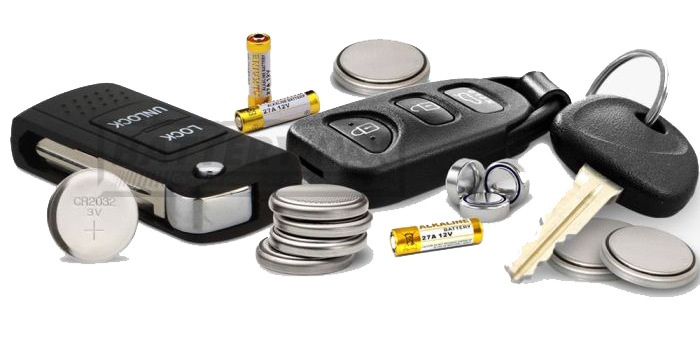The car remote battery supplies power to transmit signals between the remote and the car’s receiver, enabling keyless entry and other functionalities. Over time, like any battery, the car remote battery may lose its charge and require replacement. If your car’s remote is malfunctioning, it’s time to replace the battery.
Explore our collection of key fob batteries online or contact us for assistance in finding a specific key fob battery for your car’s model.


We provide comprehensive replacement service for automotive batteries. Whether you’re at home, work, or facing a roadside breakdown, our team is just a call away.
We can also help you with:
After replacement, our experienced auto electricians test the charging system to confirm your battery’s ability to hold a charge and start your vehicle next time. Additionally, a test drive is conducted to ensure optimal performance when the car is warmed up and at operating temperature.
At ProTect Auto, we’re not just about servicing your car; we’re also committed to protecting the environment. When it’s time to replace your old car battery, bring it to us for recycling. Although we don’t offer monetary compensation for old batteries, we ensure they are recycled responsibly.

On average, a car battery lasts between 3 to 4 years. Routine maintenance includes checking and inspecting the battery after three years, even if replacement hasn’t been necessary yet.
Car battery life can be shortened by the frequent, abrupt motions of daily driving, including quick starts, navigating corners, and sudden stops. Such actions may result in the loosening of the car battery within the engine. Excessive battery movement can induce vibrations, placing strain not only on the battery but also on the surrounding components and its circuits. Regular checks and maintenance are essential to mitigate these factors and ensure optimal battery performance.
Modern car batteries are typically maintenance-free, sealed units, and they do not require water refilling. These sealed batteries are designed to be maintenance-free, eliminating the need for periodic water checking or refilling.
However, if you have an older-style battery with removable caps, it’s advisable to check the water levels occasionally, typically every 3-6 months. If the water levels are low, you can add distilled water to ensure proper functioning. Always refer to your specific battery’s manual or consult with our team at ProTect Auto if you are unsure about the maintenance requirements of your car battery. We also provide our services related to car battery in Auckland.
Short trips, especially in urban areas, can drain the battery. Starting a car consumes 150-350A of battery power, and short journeys may not provide sufficient time for the alternator to replenish this charge, particularly in vehicles with ‘stop/start’ functions.
In warmer climates, car batteries typically last around three years. The elevated temperatures in hot regions accelerate the chemical reactions that generate electricity in a battery, consequently speeding up the overall degradation process. In cooler climates, a car battery may last five years or more.
A car battery can be adversely affected by temperatures reaching 140 degrees or higher. At such elevated temperatures, the internal components of the battery, particularly the fluid containing water, may undergo evaporation, leading to potential damage to the battery’s internal structure. It’s essential to shield your vehicle from extreme heat to preserve the longevity and effectiveness of the car battery.
A battery replacement becomes necessary if your battery’s state of health drops below 50% or if it’s consistently showing signs of weakness or deterioration. However, for optimal vehicle performance and safety, it’s recommended to consider replacing your battery every three years. After four or five years, most car batteries tend to become increasingly unreliable. Ageing batteries can pose safety risks, such as the risk of explosions or battery acid leakage.